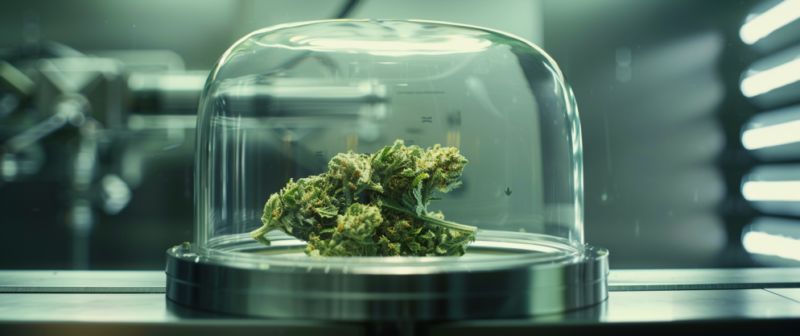Delta 8 FAQs
Delta 8 tetrahydrocannabinol, a cannabinoid derived from hemp, has garnered significant attention for its unique properties and potential therapeutic benefits. As interest in Delta 8 continues to grow, numerous questions arise about its legality, effects, consumption methods, and more.
This article addresses commonly asked Delta 8 FAQs, offering insights into its uses, safety considerations, and regulatory status to help users navigate this emerging cannabinoid landscape effectively.
What is Delta 8?
Delta 8 is a cannabinoid derived from the cannabis plant, and it has gained significant attention for its potential therapeutic properties and effects on the brain. Unlike its more famous cousin, Delta 9 THC, Delta 8 offers a different experience that many consumers find appealing for various health-related reasons.
Both Delta 8 THC and Delta 9 THC have a similar chemical makeup of 21 carbon atoms, 30 hydrogen atoms, and two oxygen atoms, but the difference lies in the placement of a double bond.
Delta 8 THC has this bond on the 8th carbon chain, while Delta 9 THC’s double bond is on the 9th carbon chain. This subtle difference influences how these compounds interact with the endocannabinoid system in the human body.
How is Delta 8 Different from Delta 9 THC?
Delta 8 differs from Delta 9 THC primarily in its chemical structure, which affects how it interacts with cannabinoid receptors in the brain.
While both Delta 8 and Delta 9 THC bind to the CB1 receptors in the brain, the difference lies in the strength of their bond, making each a different isomer. Delta 8 forms a weaker bond with the receptors compared to Delta 9 THC, resulting in milder psychoactive effects. This subtle variation in binding makes Delta 8 less potent in producing the intense high commonly associated with traditional THC.
Consequently, individuals consuming Delta 8 may experience a more functional high, leading to reduced stress and paranoia. The distinct chemical structure of Delta 8 also influences the way it interacts with other neurotransmitters in the brain, potentially offering unique therapeutic benefits.
How Does Delta 8 Work?
Delta 8 THC interacts with the body’s endocannabinoid system (ECS) through a complex mechanism that influences various physiological processes.
When consumed, Delta 8 THC enters the blood and binds primarily to CB1 receptors located in the central nervous system and CB2 receptors found in peripheral organs and tissues. This interaction modulates neurotransmitter release, impacting functions such as discomfort perception, mood regulation, and appetite.
Delta 8 THC’s efficacy is enhanced by the entourage effect, where synergistic interactions with other cannabinoids, terpenes, and compounds present in cannabis extracts amplify its effects. The chemical compound undergoes metabolism in the liver, converting into metabolites that are eventually eliminated from the body.
This process affects the duration and intensity of Delta 8 THC’s effects, influencing factors like taste and concentration in different cannabis products. The extraction and distillation methods used to isolate Delta 8 THC from hemp or cannabis plants play a crucial role in its purity and potency, ensuring consistent standards for therapeutic and recreational use.
Is Delta 8 Legal?
The legality of Delta 8 THC is influenced by a complex interplay of federal and state regulations, particularly shaped by the Agriculture Improvement Act of 2018, also known as the 2018 Farm Bill, which legalized hemp and its derivatives across the United States.
However, the legal status of Delta 8 remains nuanced and varies significantly from state to state due to differing interpretations and regulations concerning its psychoactive properties.
Federal Legislation and Guidelines
Under the Agriculture Improvement Act of 2018, hemp-derived products containing less than 0.3% Delta 9 THC are federally legal. Delta 8 THC, derived from hemp-derived CBD, falls within this threshold, theoretically making it legal at the federal level.
State Regulations and Variances
Despite federal guidelines, individual states retain the authority to regulate or prohibit the sale and use of Delta 8 within their jurisdictions.
States like Colorado, California, and Michigan have explicitly legalized Delta 8, implementing specific regulations governing its production, sale, and consumption. Conversely, states such as Alaska, Arizona, and Arkansas have opted to ban Delta 8 due to concerns over its psychoactive effects.
Ambiguous Legal Standing
States like Texas, Florida, and Georgia face ongoing debates and pending legislation regarding the legality of Delta 8. These states are actively reviewing their stance on Delta 8, considering its potential impact on public health and safety.
The Drug Enforcement Administration (DEA) closely monitors these state-level regulations to ensure compliance with federal laws and guidelines.
Continued Legislative Developments
The legal landscape of Delta 8 THC continues to evolve, with states like Connecticut, New Hampshire, and Vermont handling discussions and proposed bills that could influence its legal status.
Organizations such as the Food and Drug Administration (FDA) and the Centers for Disease Control and Prevention (CDC) provide information and guidance regarding the regulation of cannabinoids, including Delta 8.
Packaging and Labeling Requirements
In states where Delta 8 is legal, strict packaging and labeling requirements are often mandated to ensure consumer safety and compliance with state laws. Proper labeling informs consumers about the product’s contents, dosage, and potential risks, providing transparency and accountability within the industry.
What are the Benefits of Delta 8?
Delta 8 is reputed to offer several benefits, including improved mood, increased relaxation, and enhanced appetite, making it a popular choice for those seeking therapeutic analgesic effects without the intense high associated with Delta 9 THC.
Can Delta 8 Help with Stress?
Many users find that Delta 8 can help alleviate stress by promoting relaxation and calming the nervous system.
When Delta 8 interacts with the body’s endocannabinoid system, it influences the release of neurotransmitters that play a key role in regulating stress levels. This includes serotonin, which is often referred to as the ‘feel-good’ neurotransmitter. By modulating serotonin levels, Delta 8 can promote feelings of well-being and help reduce stress.
Studies have shown that cannabinoids like Delta 8 can have an anxiolytic effect, meaning they help reduce stress. A study published in the journal ‘Frontiers in Pharmacology’ found that Delta 8 specifically interacts with CB1 receptors in the central nervous system, resulting in decreased stress levels.
Can Delta 8 Help with Feelings of Stress?
Delta 8 may help reduce symptoms of stress by modulating mood and providing a calming effect, though it’s recommended to consult a health professional for personalized advice.
One potential mechanism through which Delta 8 could alleviate stress is its interaction with the body’s endocannabinoid system. This system plays a crucial role in regulating various physiological processes, including mood and stress responses.
Research suggests that Delta 8 may bind to the cannabinoid receptor 1 in the brain, which is involved in mood regulation. By modulating the activity of these receptors, Delta 8 could help promote a sense of relaxation and reduce feelings of stress.
While some preliminary studies have studied the anxiolytic properties of Delta 8, more research is needed to fully understand its effectiveness and safety profile. It is always advisable to seek guidance from a healthcare provider before incorporating Delta 8 into your therapy.
Can Delta 8 Help with Sleep?
Delta 8 is often reported to improve sleep quality by promoting relaxation and reducing symptoms that interfere with restful sleep.
Many users have found that incorporating Delta 8 into their bedtime routine leads to a more serene and uninterrupted night’s rest. This promising compound is believed to interact with the body’s endocannabinoid system, which plays a crucial role in regulating various physiological functions, including sleep.
Some preliminary studies suggest that Delta 8 may help regulate sleep patterns by influencing neurotransmitters involved in the sleep-wake cycle. These findings align with anecdotal evidence from individuals who claim a noticeable improvement in their sleep duration and quality after using Delta 8 products.
What are the Side Effects of Delta 8?
Delta 8 THC, like any substance that interacts with the body’s systems, can lead to various effects, both positive and negative. Here’s a breakdown of what you should know:
Common Side Effects
Delta 8 THC may cause several mild and temporary side effects, although individual patient responses can vary and may even lead to an adverse effect:
- Nausea: Some users report feelings of queasiness and stomach upset after consuming Delta 8 THC.
- Dizziness: Another common side effect is dizziness, ranging from mild lightheadedness to more severe vertigo, affecting balance and coordination.
- Dry Mouth: Often referred to as cottonmouth, this sensation is due to reduced saliva production, which can be managed by staying hydrated.
Managing Side Effects
While typically short-lived, these side effects can be managed with simple strategies:
- Hydration: Drinking plenty of water can alleviate dry mouth and help mitigate other discomforts.
- Light Snacks: Consuming a light snack before using Delta 8 THC may reduce the likelihood of nausea.
- Dosage Adjustment: Finding the optimal dosage can minimize unwanted effects like tachycardia. Starting with a lower dose and gradually increasing it allows for better tolerance.
Addiction Potential
The addictive potential of Delta 8 THC is a subject of ongoing research and debate:
- Lower Risk: Compared to Delta 9 THC, Delta 8 THC is believed to be less potent, resulting in a milder high and potentially lower risk of addiction.
- Endocannabinoid System: Delta 8 THC interacts with the body’s endocannabinoid system, affecting the brain’s reward pathways similarly to other substances that can lead to addictive behaviors and declined mental health.
- Moderation: Practicing moderation and monitoring consumption are essential steps to mitigate the risk of developing addictive substance abuse habits.
Seeking Professional Advice
If you experience signs and symptoms while using Delta 8 THC, such as confusion, shortness of breath, hypotension or low blood pressure, vomiting, psychosis, or changes in consciousness, seek medical attention promptly.
Consulting with a healthcare professional or contacting a poison control center can provide guidance tailored to your specific situation. This proactive approach ensures safe usage and management of potential side effects associated with Delta 8 THC consumption.
How Do You Use Delta 8?
Using Delta 8 can vary depending on the product form and desired dose, with consumers having multiple options such as tinctures, edibles, and vapes.
What Forms Does Delta 8 Come In?
Delta 8 is available in various forms, including:
- Tinctures
- Edibles (candy, chocolate, etc)
- Oils
- Vapes
Each form of Delta 8 consumption comes with its own set of advantages and disadvantages. Tinctures, for example, are convenient to use, providing precise dosage control; however, they may not be as discreet as edibles. On the other hand, edibles offer a longer-lasting effect but slower onset.
Oils, often used for sublingual consumption, are versatile and can be easily incorporated into daily routines. Vapes, known for their rapid onset of effects, offer quick relief for those seeking immediate results.
How Do You Dose Delta 8?
Dosing Delta 8 can vary greatly depending on the individual, and it’s important for consumers to start with a low dose and gradually increase as needed to achieve the desired therapeutic effects.
Factors such as body weight, experience level with cannabis products, and the specific desired effects play a significant role in determining the right dosage. For those new to Delta 8 or with lower body weights, starting with a small dose is recommended to assess tolerance and effects.
Can Delta 8 Be Detected in a Drug Test?
Delta 8 THC can potentially be detected in drug tests, depending on the type of test and its sensitivity to cannabinoids.
While traditional drug tests primarily focus on detecting Delta 9 THC, which is the main psychoactive component in cannabis, some tests may also detect Delta 8 THC due to its structural similarity and shared metabolites.
Urine tests are the most common method used for detecting THC compounds, including Delta 8, as it can be present in urine for several days after use. Blood tests can also detect Delta 8 THC, typically within a shorter window of a few hours to a couple of days after consumption.
Hair tests, though less common, can potentially detect Delta 8 THC for a longer period, up to several months, depending on hair growth.
Contamination with other substances or medications does not typically interfere with the detection of Delta 8 THC specifically. However, it’s essential to note that the threshold levels and sensitivity of drug tests can vary, and false positives or negatives may occur.
Individuals subject to a drug test should consider these factors and the legality of Delta 8 THC in their jurisdiction before consumption.
Final Thoughts – Delta 8 FAQs
Delta 8 presents a promising option for those seeking various health benefits and therapeutic effects, but consumers should remain aware of the legal status and potential side effects.
It is important for individuals interested in trying Delta 8 to understand the specific benefits it may offer, such as discomfort relief, stress reduction, and enhanced focus. In addition, Delta 8 is known for its milder psychoactive effects compared to Delta 9 THC, making it appealing to those looking for a more subtle experience.
It is crucial to acknowledge the potential risks associated with Delta 8 consumption, including impairment of cognitive function, increased heart rate, and possible legal concerns depending on local regulations.
To make informed decisions, consumers should educate themselves on the laws surrounding Delta 8 in their region and consult healthcare professionals to ensure its compatibility with their individual health conditions.


